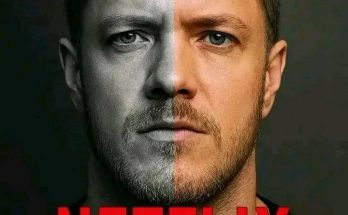In early May 2025, Derek Carr made a shocking announcement that sent waves through the NFL community: he was officially retiring from professional football. For years, Carr had been known as one of the league’s most reliable quarterbacks, a player who combined accuracy, leadership, and durability with a work ethic that inspired teammates and earned the respect of coaches and opponents alike. Yet, despite still being capable of performing at a high level, Carr made the conscious choice to step away from the game, a decision that would have significant financial, emotional, and personal ramifications. What made the retirement particularly noteworthy was the financial aspect: Carr chose to retain the $10 million roster bonus he had already received, while deliberately passing up a guaranteed $30 million contract for the upcoming season. For a player in the prime of his career and for many athletes in professional sports, turning down that level of guaranteed income is virtually unheard of. Carr’s decision underscored that his reasoning extended far beyond money, reflecting considerations of health, morality, and personal peace.
Carr discussed the complexity of this decision in detail during an appearance on the Dan Patrick Show on September 11, 2025, providing insight into the internal deliberations that had guided him. He admitted that the financial side of the equation was not insignificant, explaining that turning down a guaranteed $30 million contract was a challenging prospect for anyone, particularly for a professional athlete whose career earnings are finite and often front-loaded. “That part was tough,” Carr admitted. “I didn’t want to have surgery and just sit there and… just take the Saints’ money.” The candid acknowledgment of the struggle highlighted the human dimension of professional sports, a side that is often overshadowed by statistics, highlights, and contracts. Athletes are expected to perform, entertain, and compete at the highest level, but they are also individuals facing personal dilemmas, and Carr’s transparency allowed fans to understand the weight of the decision he had made.
The circumstances surrounding Carr’s retirement were rooted in both physical and ethical considerations. He had been dealing with injuries that, while manageable in the short term, would have required surgery and extensive rehabilitation to ensure continued performance at the NFL level. Rather than subjecting himself to invasive procedures and months of recovery only to return to a demanding schedule, Carr weighed the impact on his long-term health and quality of life. The physical toll of playing quarterback, particularly in today’s NFL with its combination of speed, athleticism, and constant defensive pressure, cannot be understated. Carr’s decision reflected a realistic appraisal of these factors, demonstrating maturity and foresight that went beyond the immediate rewards of a guaranteed salary. It was an acknowledgment that sometimes stepping away from the game is not a sign of weakness, but rather of wisdom.
Equally significant was Carr’s consideration of morality and fairness, both to himself and to the organization. He explicitly cited these values as central to his decision-making process. By forgoing the $30 million guaranteed contract, Carr expressed a desire not to exploit the team financially while being unable to contribute fully on the field. In professional sports, where contracts are often structured with guarantees and incentives, it is relatively common for players to secure guaranteed money even if injuries or declining performance limit their ability to participate. Carr’s choice ran counter to this norm, reflecting a commitment to integrity and a sense of responsibility to his teammates and the Saints organization. This moral calculus adds depth to his decision, illustrating that for some athletes, considerations of fairness and principle can outweigh even the most substantial financial incentives.
Carr also spoke about the psychological dimension of the decision, emphasizing the need for personal tranquility. Retirement, particularly from a profession that has defined one’s identity for decades, is rarely a straightforward process. For Carr, the thought of continuing under the strain of injury, surgery, and rehabilitation while trying to meet the high expectations of an NFL quarterback was not compatible with his personal peace. He recognized that the constant pressure, the scrutiny, and the physical demands of returning to the field could have negative consequences for his well-being. By stepping away, he preserved his mental and emotional health, valuing the long-term stability of his life over short-term financial gain. This perspective challenges the conventional narrative that professional athletes are motivated primarily by money or competitive success, offering a more nuanced understanding of the factors that influence major life decisions.
From a broader perspective, Carr’s retirement highlights an ongoing conversation within professional sports about player health, longevity, and the ethics of compensation. In an era where medical advances have extended careers and allowed players to perform at elite levels well into their 30s, the physical and emotional toll of continuing to compete is often underestimated. Carr’s decision to retire despite the opportunity to secure another substantial contract serves as a reminder that financial security, while important, is not the only factor guiding professional athletes. Decisions about when to retire are deeply personal and multifaceted, encompassing considerations of health, family, personal values, and long-term life satisfaction. Carr’s approach may inspire other players to think critically about their own careers and the balance between immediate rewards and long-term well-being.
Financially, the decision to forgo a guaranteed $30 million contract while keeping the $10 million roster bonus is complex and nuanced. The $10 million bonus represented compensation for services already rendered and was legally and ethically Carr’s to retain. The $30 million, on the other hand, was tied to future performance and participation, which Carr would be unable to fulfill. By voluntarily declining that sum, Carr demonstrated a rare form of financial ethics in professional sports, prioritizing fairness over personal enrichment. It is an uncommon move in a league where guaranteed contracts are often seen as the ultimate measure of financial security and bargaining power. Carr’s choice may serve as a benchmark for ethical decision-making, showing that adherence to principles can coexist with, and even enhance, one’s legacy.
Carr’s decision also has implications for the Saints organization. By retiring voluntarily and foregoing the guaranteed contract, he allowed the team to allocate resources differently, providing flexibility in roster construction and salary cap management. For the organization, this act of goodwill facilitates planning for the future and potentially enhances team culture by demonstrating that players can act with integrity and consideration for the collective good. It also sends a message to both fans and teammates that leadership extends beyond the field, encompassing ethical and personal responsibility. Carr’s retirement thus has ripple effects that reach into team dynamics, organizational strategy, and the broader perception of the franchise.
From a career standpoint, Carr leaves behind a legacy defined not just by statistics and wins, but also by character and decision-making. Throughout his years in the NFL, he was known as a reliable quarterback who could be trusted to manage games efficiently, protect the football, and lead by example. His retirement, framed around ethics and personal well-being, reinforces these qualities, showing that leadership is about more than performance metrics. It is about making difficult choices with integrity, considering the impact on oneself and others, and prioritizing values alongside professional responsibilities. Carr’s approach provides a model for younger players who are navigating similar pressures and expectations, illustrating that success in sports is multidimensional.
The public response to Carr’s retirement has been overwhelmingly positive, reflecting admiration for both his professional accomplishments and the thoughtfulness of his decision. Fans, analysts, and fellow players have praised his honesty and courage, noting that few athletes would willingly turn down such a significant financial opportunity. Social media and sports commentary have highlighted the rarity of Carr’s decision, emphasizing that it represents a blend of personal morality, foresight, and respect for the game. By framing retirement in terms of values rather than fear or decline, Carr has contributed to a broader cultural conversation about what it means to be a professional athlete in the modern era.
Carr’s discussion on the Dan Patrick Show added depth to public understanding of the decision-making process behind retirement. His candid explanation of the conflict between financial incentives and personal principles offered insight into the difficult choices athletes face. By articulating the moral and psychological considerations that guided his choice, Carr provided a narrative that is relatable not just to athletes, but to anyone grappling with the tension between financial security and personal integrity. His emphasis on tranquility and ethical responsibility underscores the human side of professional sports, reminding fans that players’ decisions are shaped by more than just statistics, contracts, and on-field performance.
Health considerations were central to Carr’s decision, as he had to weigh the demands of another NFL season against the potential long-term consequences of continued play. The physical demands of professional football are immense, and quarterbacks, despite protective rules and advances in equipment, are subject to repeated impacts that can have lasting effects. Carr’s choice to retire before sustaining potentially career-altering injuries demonstrates foresight and prudence. By valuing long-term health and quality of life over immediate financial gain, he highlighted the importance of sustainable career management and personal responsibility, providing a template for future players navigating similar crossroads.
Family and personal life also played a role in Carr’s deliberations. Stepping away from the game allows him to devote more time to family, personal development, and life outside of football. For many athletes, balancing professional demands with personal fulfillment is a constant challenge, and retirement opens the door to new opportunities and experiences. Carr’s choice reflects an understanding that life after football is significant, and that prioritizing personal relationships, well-being, and peace of mind is a valid and commendable rationale for leaving the game. In this sense, his decision transcends the purely professional realm and enters the broader context of life planning and values alignment.
Ultimately, Derek Carr’s retirement in May 2025 represents a convergence of health, ethics, financial consideration, and personal tranquility. By choosing to retain the $10 million roster bonus while forgoing a $30 million guaranteed contract, he underscored that integrity and well-being can outweigh even the most substantial financial incentives. His candid reflections on the Dan Patrick Show illuminated the difficulty of such a decision and the depth of thought that went into it, offering fans and fellow athletes alike a window into the personal calculus that guides career-defining choices. Carr’s approach challenges conventional notions of success in professional sports, suggesting that ethical reasoning, long-term health, and personal peace are equally important measures of accomplishment.
In reflecting on Carr’s decision, it is clear that his retirement will leave a lasting impact on the NFL and the Saints organization. It redefines the conversation around player compensation, ethics, and career longevity, illustrating that athletes can make choices guided by values rather than solely by monetary considerations. Carr’s legacy will be remembered not just for the games he won, the records he set, or the leadership he exhibited on the field, but also for the moral courage and foresight he demonstrated in choosing the path that was right for him and the team. In a sport often dominated by headlines about contracts, trades, and financial disputes, Carr’s decision serves as a reminder that integrity, personal well-being, and ethical responsibility remain vital components of professional athletic life.
In conclusion, Derek Carr’s retirement announcement in early May 2025 marked a defining moment in his career and in the broader NFL landscape. By forgoing a guaranteed $30 million contract while retaining a $10 million roster bonus, he made a statement that transcends conventional notions of professional success. Carr’s candid reflections on the Dan Patrick Show revealed the multifaceted reasoning behind his choice, encompassing physical health, moral responsibility, financial ethics, and personal tranquility. His decision highlights the complexities athletes face when balancing career ambitions with personal values, offering a model of integrity and foresight that will resonate for years to come. Carr’s retirement is not merely the end of a professional career; it is an affirmation of principles, a celebration of thoughtful decision-making, and a testament to the idea that true leadership is measured not only by performance on the field, but also by the courage to make difficult, principled choices in life.



